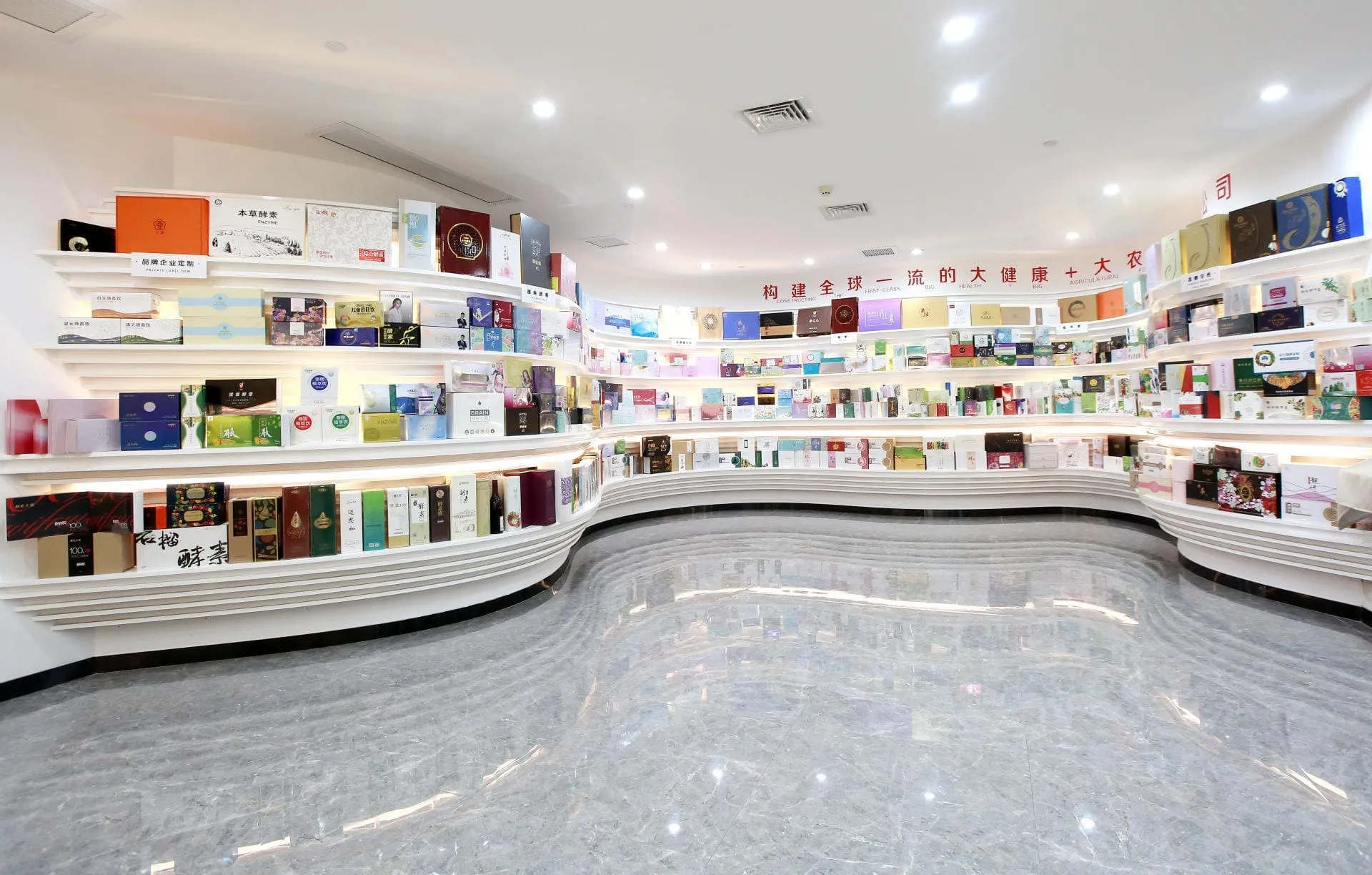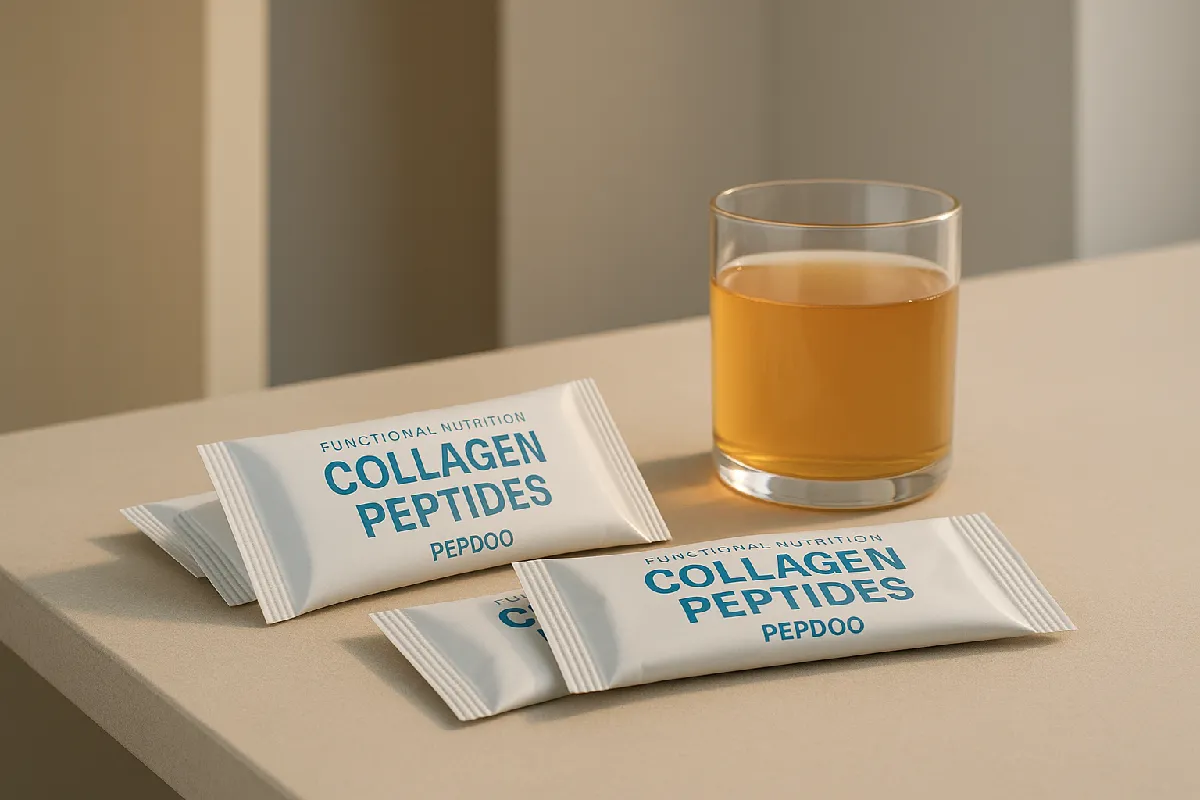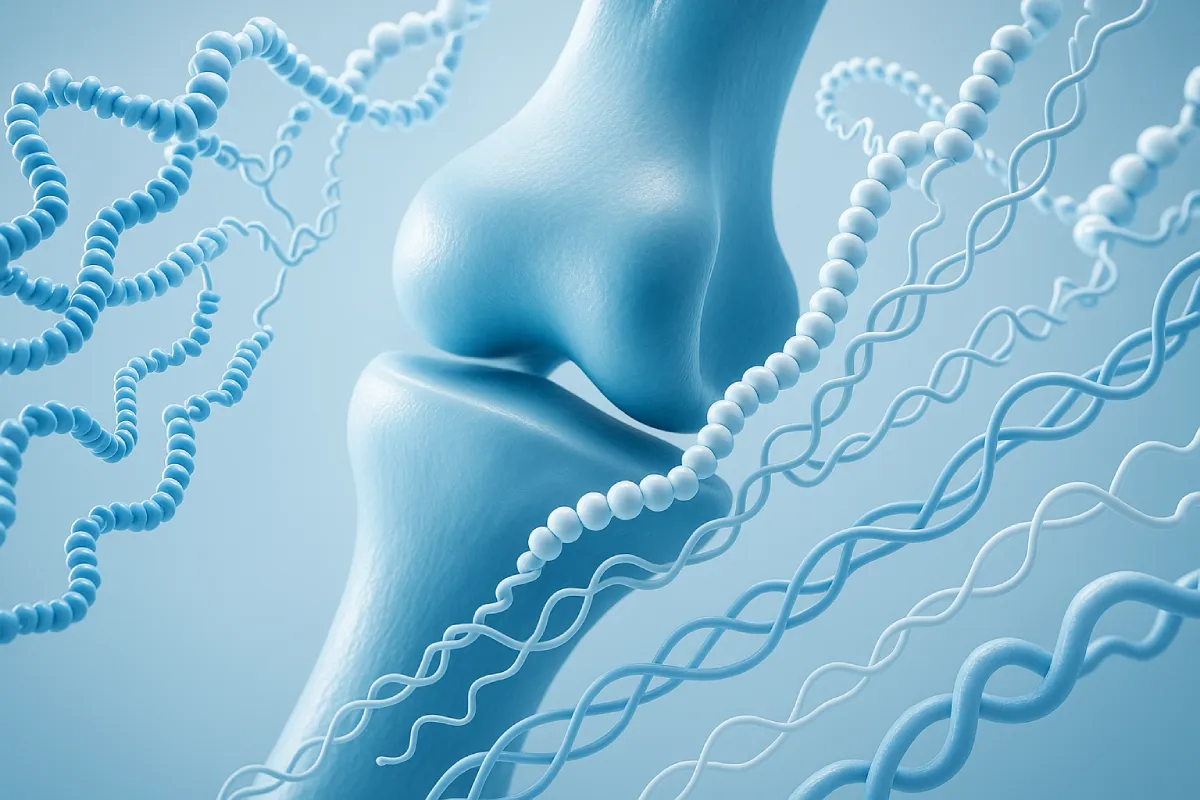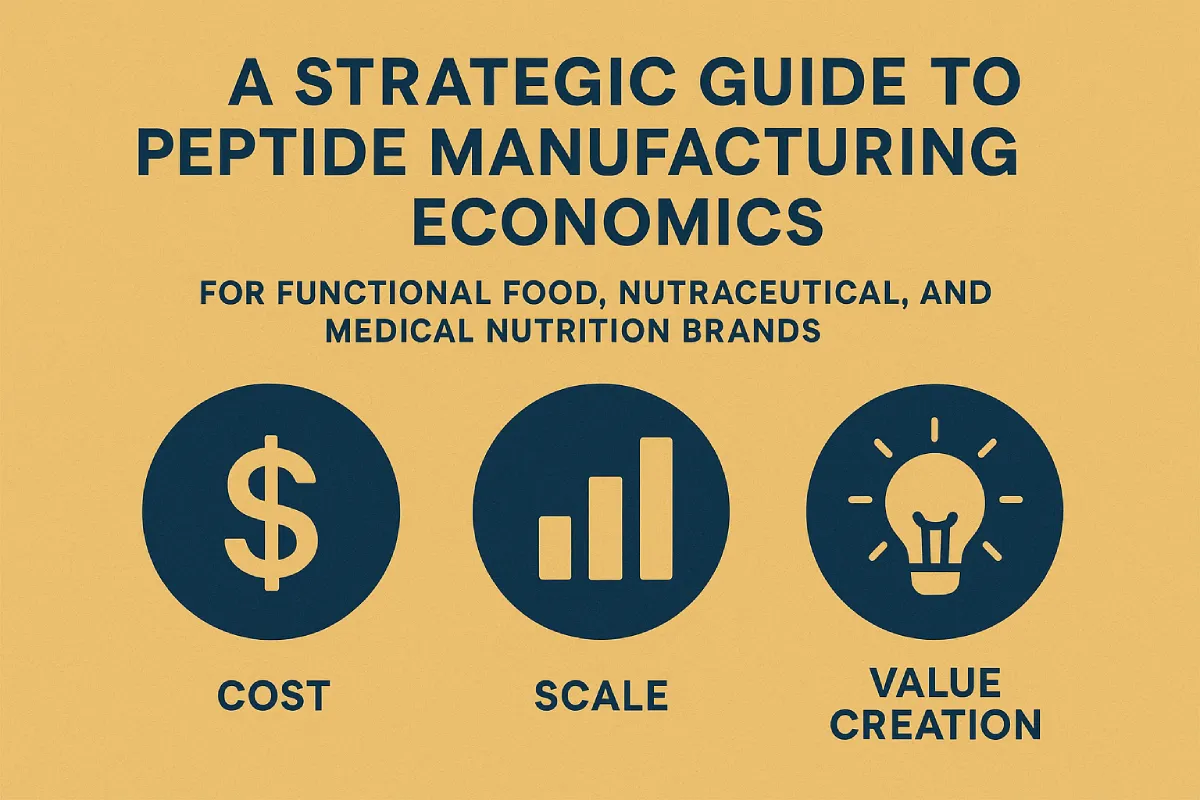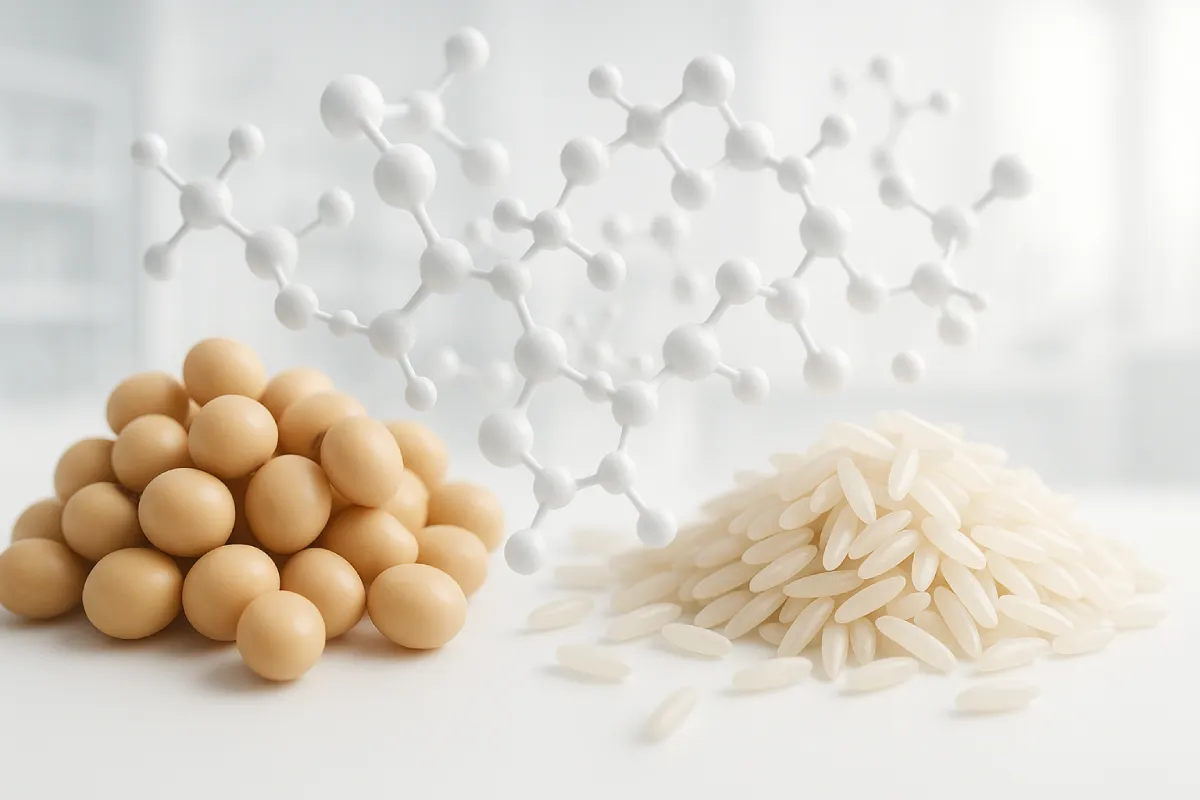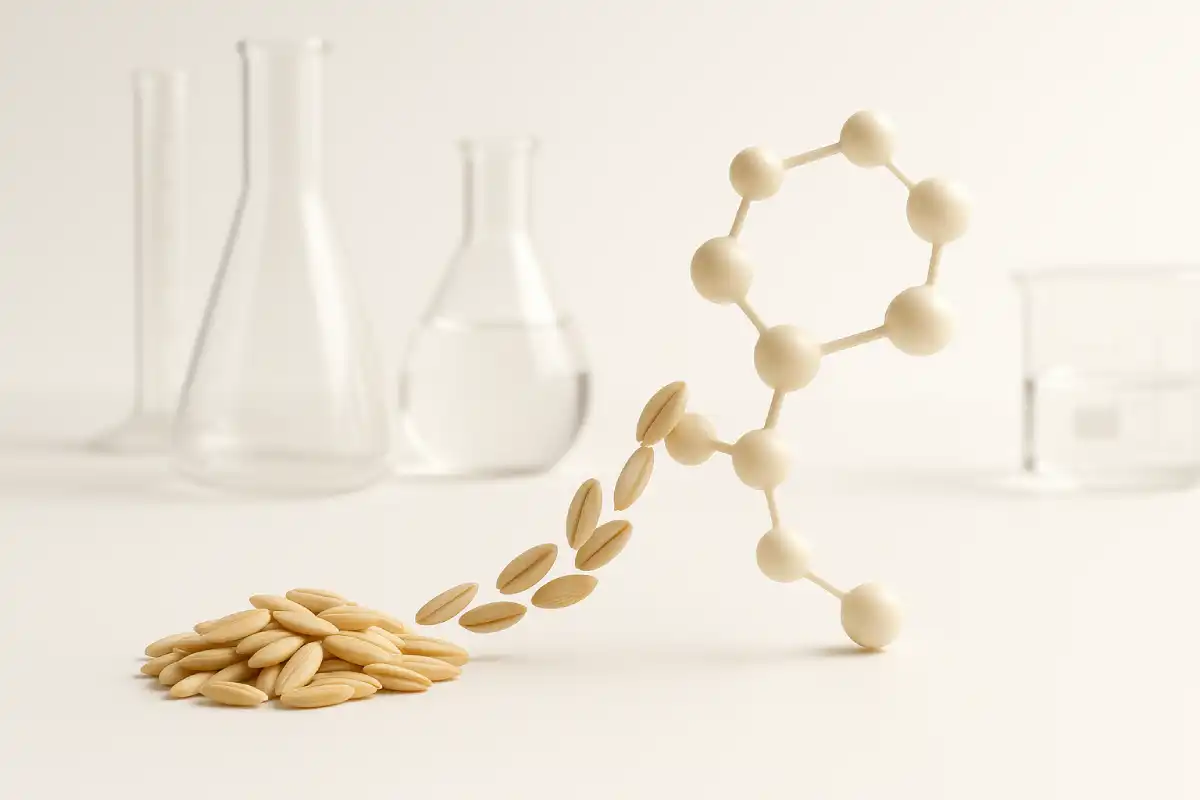Collagen Peptides: A Key Ingredient Driving Active Aging Innovation
As the global population ages, the concept of “active aging” has evolved from a wellness buzzword into a serious agenda for public health, nutrition science, and product innovation. Active aging emphasizes maintaining physical, mental, and social vitality throughout one’s later years. At the heart of this movement is a surging demand for functional ingredients that support long-term mobility, skin integrity, and metabolic resilience.
Among these, collagen peptides have emerged as a leading solution. Backed by clinical evidence and consumer familiarity, they are being increasingly adopted in supplements, functional foods, and ready-to-drink (RTD) beverages worldwide. For B2B formulators, brand owners, and ingredient buyers, understanding the dynamics behind this demand—and sourcing from a reliable collagen peptide manufacturer—is critical to seizing market opportunity.
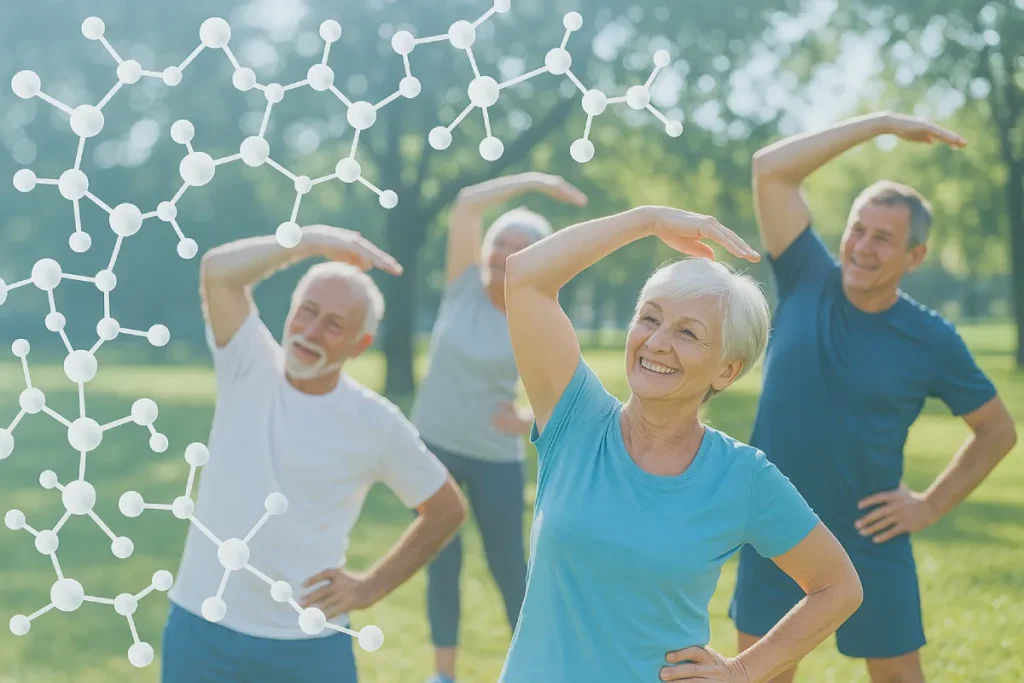
The Science of Collagen Peptides in Active Aging
Collagen, the body’s most abundant protein, plays a central role in skin elasticity, joint flexibility, and bone strength. Unfortunately, natural collagen production begins to decline in our mid-20s and continues to deteriorate with age—leading to visible signs of aging and increased risk of musculoskeletal issues [1].
Collagen peptides, also known as hydrolyzed collagen, are short-chain amino acids produced through enzymatic hydrolysis of collagen-rich sources such as bovine, fish, or porcine tissues. These bioactive peptides are easily absorbed and can stimulate the body’s own collagen synthesis when consumed regularly.
Clinical studies have shown measurable benefits of oral collagen peptides for skin hydration, wrinkle reduction, joint comfort, bone density maintenance, and muscle preservation—core pillars of the active aging model [2][3]. These benefits are often enhanced when collagen peptides are combined with synergistic nutrients like vitamin C, hyaluronic acid, or glucosamine.
Global Demand Drivers: From Asia to the Americas
The market for collagen peptides in active aging is expanding globally, with growth driven by shifting demographics, consumer awareness, and technological advances in ingredient formulation.
- Asia-Pacific is leading in both volume and innovation. Japan and South Korea have long incorporated collagen-rich diets and functional beverages, while China’s healthy aging market is booming due to a rapidly aging population and increasing disposable income.
- North America shows strong demand in nutricosmetics and joint-support supplements. Consumers aged 35+ are seeking holistic, evidence-based products to maintain performance and appearance.
- Europe emphasizes clean-label, sustainable sourcing, and traceability—creating opportunities for marine collagen peptides and organic-certified ingredients.
- Emerging markets in Latin America and the Middle East are also growing as collagen peptides become more accessible through e-commerce and private-label supplement expansion.
At PEPDOO®, we serve global markets with region-specific formulations and export-ready documentation, enabling fast go-to-market strategies for collagen peptide-based products.
Key Applications in the Active Aging Ecosystem
Collagen peptides are no longer confined to skin creams or beauty powders. Their versatility has unlocked diverse product formats targeting a wide range of aging-related concerns:
1. Beauty-from-Within Products
Nutricosmetic formulas using fish or bovine collagen peptides are now foundational in beauty capsules, powders, and gummies. Formulations often pair collagen with co-factors such as biotin, ceramides, and antioxidants to enhance dermal effects.
2. Joint and Bone Health Supplements
Collagen types I and II, particularly from bovine sources, support cartilage regeneration and bone density. These are increasingly formulated alongside MSM, calcium, or vitamin D to address age-related degeneration in mobility.
3. Functional Beverages and RTDs
The RTD sector is exploding with collagen-infused drinks, including anti-aging coffees, protein smoothies, and sparkling waters. Low molecular weight collagen peptides ensure solubility, stability, and quick absorption—ideal for aging consumers with fast-paced lifestyles.
4. Active Senior Nutrition
Collagen is finding its place in meal replacement powders and elderly-friendly formulations that aim to maintain muscle mass, prevent frailty, and improve overall vitality. Combined with plant protein or MCT oil, collagen peptides support metabolic and immune balance in aging populations.
As a full-spectrum collagen peptide manufacturer, PEPDOO® provides ingredient options customized for these diverse application needs—from 2000 Da fast-absorbing peptides to odor-controlled marine collagen.
What B2B Buyers Should Consider When Sourcing Collagen Peptides
For B2B brands and formulators in the healthy aging space, not all collagen peptides are created equal. Critical sourcing considerations include:
- Origin and Type: Fish collagen (Type I) for skin; bovine (Type I & III) for skin and joints; porcine (Type I) as a cost-effective alternative
- Purity and Molecular Weight: Optimized for bioavailability and digestive ease
- Functional Claims Support: Ingredient supported by human trials and standardized documentation
- Regulatory Compliance: Certifications such as ISO, Halal, Kosher, Non-GMO, FSSC 22000, and GRAS approval
- Sensory Profile: Low-odor, fast-dissolving, flavor-neutral options to suit taste-sensitive markets
PEPDOO® offers vertically integrated production with in-house enzymatic hydrolysis, spray drying, and quality assurance, ensuring traceable, customizable collagen peptide ingredients for every aging-related product strategy.

How to Win in the Collagen-Powered Aging Market
To succeed in the competitive collagen peptide space, B2B brands must align their innovation strategies with both consumer needs and manufacturing excellence. Consider:
- Positioning: Develop products for specific age brackets (40+, 50+, 60+), emphasizing skin, bone, joint, or performance benefits
- Multi-Ingredient Synergy: Combine collagen with peptides, vitamins, botanicals, or probiotics to amplify outcomes
- Delivery Formats: Explore new carriers—chewables, dissolvable strips, functional snacks—for senior accessibility
- Supply Chain Stability: Work with manufacturers capable of large-scale, high-spec, and traceable delivery
As a global functional peptide solution provider, PEPDOO® empowers brands to stay ahead with R&D-backed formulations, on-demand customization, and consistent quality control.
Conclusion: Collagen Peptides Will Shape the Future of Healthy Aging
Collagen peptides are more than a trend—they are an essential component of a science-based, consumer-driven approach to active aging. Their role in promoting beauty, strength, and resilience aligns perfectly with the needs of today’s aging but health-conscious populations.
With global demand growing and applications diversifying, now is the time for B2B stakeholders to lock in reliable collagen peptide supply and accelerate innovation pipelines.
Whether you’re launching a skin-supporting powder, a mobility-enhancing capsule, or a wellness RTD for seniors—PEPDOO® stands ready as your full-spectrum collagen peptide manufacturing partner.
📣 Ready to Launch Your Collagen-Based Active Aging Line?
PEPDOO® delivers high-quality bovine, marine, and porcine collagen peptides with full-chain manufacturing, R&D expertise, and global regulatory readiness.
Contact Our B2B TeamFAQ
Type I is most abundant, supporting skin, bones, and tendons. Type II supports cartilage and joints, while Type III helps with skin elasticity and vascular structure.
Peptides between 1000–3000 Da are optimal. PEPDOO® collagen is enzymatically hydrolyzed to controlled low molecular weights for superior bioavailability and stability.
Yes. Collagen peptides are heat-stable in RTDs, baked goods, and pasteurized beverages. PEPDOO® offers R&D support for heat-stable and neutral-flavor collagen applications.
Look for ISO 22000, FSSC, Halal, Kosher, Non-GMO, and region-specific certifications (e.g., GRAS, novel food).
We are a full-spectrum collagen manufacturer—not a trading company. We offer patented hydrolysis, consistent peptide profiles, flavor masking, and custom packaging solutions for B2B innovation.
Yes. We provide free technical-grade samples, low MOQ trial orders, and customized application R&D (RTD, capsules, powders).
Popular B2B formats include sachets, RTD drinks, capsules, gummies, and meal replacement powders. PEPDOO® offers private-label and OEM/ODM services.
MOQ starts at 20 kg (trial) and 500 kg (bulk). Lead time is 7–14 days for stocked items or 15–30 days for custom specs. We ship globally with full export support.
Yes. Common synergy: Vitamin C (collagen biosynthesis), MSM/Glucosamine (joints), HA (skin hydration), zinc & biotin (hair/skin), and plant peptides (muscle support).
Marine collagen offers smaller peptides and high absorption for beauty. Bovine collagen is ideal for joints and is cost-effective. Porcine collagen offers balanced amino acids. We tailor to your product's needs.
References
- Proksch, E., Schunck, M., Zague, V., Segger, D., Degwert, J., & Oesser, S. (2014). Oral supplementation of specific collagen peptides has beneficial effects on human skin physiology: a double-blind, placebo-controlled study. Skin Pharmacology and Physiology, 27(1), 47–55.
- Bello, A. E., & Oesser, S. (2006). Collagen hydrolysate for the treatment of osteoarthritis and other joint disorders: a review of the literature. Current Medical Research and Opinion, 22(11), 2221–2232.
- Zdzieblik, D., Oesser, S., Gollhofer, A., & König, D. (2015). Improvement of activity-related knee joint discomfort following supplementation of specific collagen peptides. Applied Physiology, Nutrition, and Metabolism, 40(6), 645–649.

